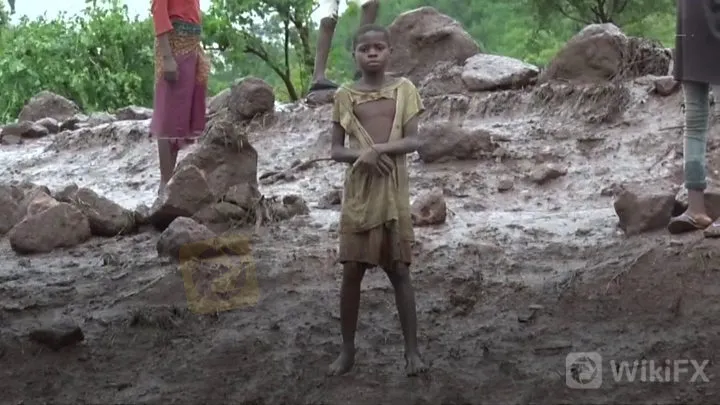简体中文
繁體中文
English
Pусский
日本語
ภาษาไทย
Tiếng Việt
Bahasa Indonesia
Español
हिन्दी
Filippiiniläinen
Français
Deutsch
Português
Türkçe
한국어
العربية
Zimbabwe: A third of population faces food crisis, says UN
Abstract:Image copyrightGetty ImagesImage caption Poor harvests have left many in need of humanitarian aidMor
Poor harvests have left many in need of humanitarian aid
More than five million people in Zimbabwe - about a third of the population - need food aid, with many coming close to starving, the UN says.
The World Food Programme (WFP) has launched a $331m (£270m) appeal as the country battles the effects of drought, a cyclone and an economic crisis.
David Beasley, head of the WFP, said many were “in crisis emergency mode... marching towards starvation”.
Once a regional bread basket, Zimbabwe has suffered years of turmoil.
Recent harvests have been badly affected by drought and the price of food has risen sharply. Low water levels have also hit the main hydro-electric plant at Kariba, triggering rolling power cuts across the country.
The country is also facing a financial crisis and has reintroduced the Zimbabwe dollar a decade after it was abandoned amidst rampant inflation.
Africa Live: More on this and other stories from the continent
Zimbabwe descends into darkness
Why Zimbabwe has banned foreign currencies
Mugabe in Singapore hospital since April
Launching the appeal on Tuesday, Mr Beasley said about 2.5 million people were on the cusp of starvation.
“We are talking about people who truly are marching towards starvation if we are not here to help them,” he said.
“We are facing a drought unlike any that we have seen in a long time.”
Image copyrightGetty ImagesImage caption
The drought has reduced water levels at Kariba, cutting electricity generation
Zimbabwe's problems were exacerbated when Cyclone Idai swept through the region earlier this year.
The huge storm, which also hit parts of Malawi and Mozambique, affected 570,000 Zimbabweans and left tens of thousands of them homeless.

Media playback is unsupported on your device
Media captionCyclone Idai: Survivors rescued by land and air
Last week, Finance Minister Mthuli Ncube said the government had been providing grain to 757,000 homes since January, in both rural and urban areas.
And on Tuesday, President Emmerson Mnangagwa, who took over from long-time ruler Robert Mugabe in November 2017, declared the drought a national disaster.
The UN was already appealing for $294m for Zimbabwe but says it now needs more funding as the impact of the drought has spread.
Disclaimer:
The views in this article only represent the author's personal views, and do not constitute investment advice on this platform. This platform does not guarantee the accuracy, completeness and timeliness of the information in the article, and will not be liable for any loss caused by the use of or reliance on the information in the article.
WikiFX Broker
Latest News
Russia to Fully Ban Crypto Mining in 10 Regions Starting January 1, 2025
Why is there so much exposure against PrimeX Capital?
Two Californians Indicted for $22 Million Crypto and NFT Fraud
RM62k Lost Investment Scam After Joining XRP Community Malaysia on Telegram
Victims of Financial Fraud in France Suffer Annual Losses of at Least €500 Million
WikiFX Review: Is Ultima Markets Legit?
Colorado Duo Accused of $8M Investment Fraud Scheme
What Impact Does Japan’s Positive Output Gap Have on the Yen?
Macro Markets: Is It Worth Your Investment?
Malaysia Pioneers Zakat Payments with Cryptocurrencies
Currency Calculator


